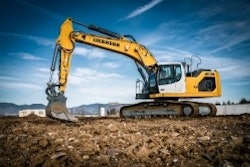Too many changes to too many tax rules are frustrating owners of small construction companies and forcing them to focus on becoming tax experts rather than on “building a strong economy,” an economist for a national contractors’ association told a Senate committee July 21.
Ken Simonson, chief economist for the Associated General Contractors of America, testified at a Senate Finance Committee hearing, expressing the industry’s need for stable and feasible tax rules.
“Some provisions are allowed to expire after a short time or are repeatedly modified,” he said. “A variety of beneficial tax provisions are scheduled to expire each year, (but) Congress typically waits until the last minute, or even after they have expired, to renew them.”
Some examples Simonson offered of constantly changing bills were: “bonus” depreciation, enacted at a 30 percent rate in 2002, expanded to 50 percent in 2003 and expired at the end of 2004; expensing for investments of $100,000 or less, a figure that under current law will drop back to $25,000 after 2007; and 15-year write-offs for leasehold improvements and restaurant improvements, due to expire at the end of 2005, just one year after enactment.
“These constant changes cause taxpayers to spend unproductive time learning about, evaluating and, if necessary, changing investment and business plans to make use of short-lived provisions,” he said.
One item at the top of Simonson’s discussion list was contractor support for three-year write-offs – instead of five – for smaller equipment. During his testimony, Simonson cited responses by contractors and their tax advisors to an e-mail survey he conducted.
He told the committee contractors accept the accelerated five-year write-off plan allowed for most equipment, but the five-year write-off for small equipment and tools, computers and software should be curtailed to three.
An often-repeated recommendation from contractors was eliminating the alternative minimum tax or at least the separate depreciation required for it. Currently both C corporations and businesses that are taxed at the individual level, such as S corporations, partnerships and sole proprietorships, must recalculate depreciation for alternative minimum tax purposes, using a longer write-off period and/or less accelerated write-off method. This requirement forces businesses to maintain two depreciation schedules for federal tax purposes.
“Committee members showed strong interest in the AMT but recognize that elimination or overhaul is likely to be very expensive,” Simonson said. “There is near-unanimity among business groups and economists that the AMT is an inefficient and harmful way to raise revenue, but there is no consensus on how to pay for replacing it.”
If wholesale reform of the alternative minimum tax can’t be enacted this year, Simonson suggested Congress eliminate the separate depreciation calculation required for it or raise the cash bracket AMT applies to prevent duplicate accounting and tax computation.
Simonson also told the committee AGC supports allowing contractors to expense pollution control devices on EPA’s verified technology list. By limiting the deduction to items on the EPA list, the environmental benefits would be maximized and the revenue loss minimized, he said.
You can reach Ebony Horton at [email protected]






